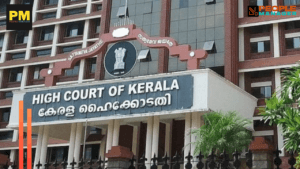Low-Interest Loans for Employee are taxable – Supreme Court
SC Fringe benefits that employees enjoy in addition to their normal compensation are, in all likelihood, taxable.

The Supreme Court of India recently delivered a landmark judgment that has significant implications for employees of private-sector banks in the country. The apex court ruled that zero-interest loans offered to these employees by their employers would be taxable as per Section 17(2)(viii) of the Income Tax Act and 3(7)(i) of I-T Rules. This ruling has stirred up a debate about the nature of fringe benefits and their taxability.
Understanding Fringe Benefits
Fringe benefits are additional compensations provided to employees over and above their regular salary. These benefits can take various forms, such as tuition support, life insurance, employee discounts, bonuses, or cash reimbursements. The Supreme Court’s ruling has clarified that such benefits, including the savings enjoyed from concessional or low-interest loans, are “unique” and fall under ‘other fringe benefit or amenity’, which is a perquisite that attracts tax.
The Complaint and the Court’s Ruling
The judgment came in response to appeals made by unions and officers’ associations that challenged Rule 3(7)(i) of the Income Tax Rules, 1962, and Section 17(2)(viii) of the Income Tax Act, 1961. The appellants argued against the taxation of interest-free or concessional loans provided by banks to their employees.
However, the Supreme Court maintained that such savings were enjoyed by the employees because of their job and only due to their status as employees of the establishment or bank. Moreover, these savings/benefits were being enjoyed in addition to the salary they were earning. Therefore, they were definitely a perquisite, which is taxable.
Implications of the Judgment
The Supreme Court’s decision upholding the taxation of interest-free/concessional loans to bank employees reaffirms the legality of Rule 3 (7) (i) under the Income Tax Rules. The judgment provides clarity on the taxation of fringe benefits and underscores the importance of consistency and fairness in tax legislation.
This ruling is expected to have far-reaching implications for both employers and employees. For employers, particularly those in the banking sector, it means they will need to reconsider the structure of their compensation packages and potentially re-evaluate the benefits they offer to their employees.
For employees, particularly those who have been enjoying these low-interest or interest-free loans, the ruling could lead to a higher tax liability. This could potentially affect their take-home pay and overall financial planning.
Conclusion
The Supreme Court’s ruling on the taxability of low-interest loans as fringe benefits is a significant development in India’s income tax landscape. It underscores the need for employees and employers to have a clear understanding of the tax implications of their compensation structures. As the debate around this issue continues, it will be interesting to see how it shapes the future of employee compensation in India.
Stay tuned, to PropleManager.co.in for further updates on the evolving workplace paradigm.
Value our content… contribute towards our growth. Even a small contribution per month would be of great help to us. Since our establishment, we have been serving the industry through daily news and updates.
Our content is free for all, and we plan to keep it that way
Support the People Manager. Pay Here
- Financial Crisis Cannot Compel an Employee to Work, Resignation Rejection Amount to Bonded Labour: Kerala High Court. - February 17, 2026
- Pernod Ricard India introduces Cheers VRorld, an industry-first VR-powered onboarding experience in the Alco-Bev sector - February 11, 2026
- Jio-bp Appoints Sareeta Bhatikar as Chief Human Resources Officer to Steer Next Phase of Growth - February 11, 2026








